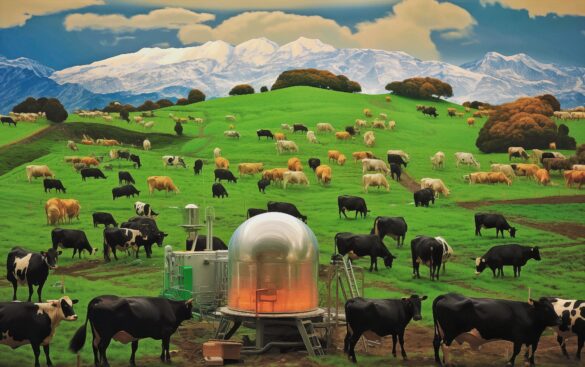Agricultural sector publication
The latest study of our Centre for Climate and Energy Analysis (CAKE) & Szkoła Główna Gospodarstwa Wiejskiego w Warszawie titled “Sensitivity of the global agricultural sector to changes in climate policy – EU countries compared to the rest of the world” has been published on SCIENDO. The authors of above publication are: Adam Wąs, Paweł Kobus, Piotr Sulewski, Robert Pietrzykowski, Robert Jeszke, Maciej Pyrka.
Article shedding light on the complexities of climate policy’s impact on the agricultural sector. Amidst global climate challenges, agriculture stands at the crossroads between the need to reduce emissions and ensuring food security.
 There has been a decline in greenhouse gas (GHG) emissions per capita in all world regions since the 1990s. In developing countries, this decline has been attributed to population growth and an increase in absolute emissions, while in developed countries, the trend is mainly due to a decrease in absolute emissions combined with minor population changes.
There has been a decline in greenhouse gas (GHG) emissions per capita in all world regions since the 1990s. In developing countries, this decline has been attributed to population growth and an increase in absolute emissions, while in developed countries, the trend is mainly due to a decrease in absolute emissions combined with minor population changes.
This paper aims to delve into the intricacies of global GHG emissions, with a spotlight on the agricultural sector. This paper assesses the patterns and reasons behind the decline in GHG emissions per capita since the 1990s across different regions. In particular, it addresses the concept of the “sustainable intensification of agriculture” and the debate between intensive vs. less-intensive production in the context of GHG emissions. Despite having high emissions per hectare, we argue that European countries show lower emissions in relation to production value, highlighting the region’s production intensity and efficiency. Compelling visual data representations and references from significant international bodies, such as the IPCC and EEA, bolster the paper’s findings and conclusions.
Key Findings:
- Global Increase in GHG Emissions: GHG emissions from agriculture are rising globally due to increased food demand from a growing population.
- Regional Differences in Emission Trends: While overall agricultural GHG emissions are increasing, Europe, Australia, and New Zealand have seen declines, in contrast to rising emissions in developing countries driven by population growth.
- Per Capita Emissions Decreasing: Despite the overall rise in emissions, per capita GHG emissions from agriculture are decreasing globally, indicating improved environmental efficiency in agricultural production, likely due to technological advancements.
- Impact of Climate Policy on Agriculture: The future impact of climate neutrality efforts on agriculture is uncertain, with significant variability in potential climate policy models and regional differences in emissions. While incorporating agriculture into EUETS could significantly reduce greenhouse gas emissions from the agricultural sector in the EU, it also increase imports and potential rise in emissions outside the EU, necessitating a balanced assessment of the impact.
- Emission Intensity and Policy Implications: The method of assessing agricultural emission intensity – whether by emissions per hectare or per unit of production – has significant implications for climate policy and the sector’s competitiveness, potentially leading to increased imports in developed countries or disadvantaging lower-productivity, developing countries.

 Reset ustawień
Reset ustawień Kontrast
Kontrast Widok
Widok Czytelność
Czytelność Czcionka
Czcionka Znaki
Znaki Interlinia
Interlinia Słowa
Słowa Akapity
Akapity Deklaracja dostępności
Deklaracja dostępności









